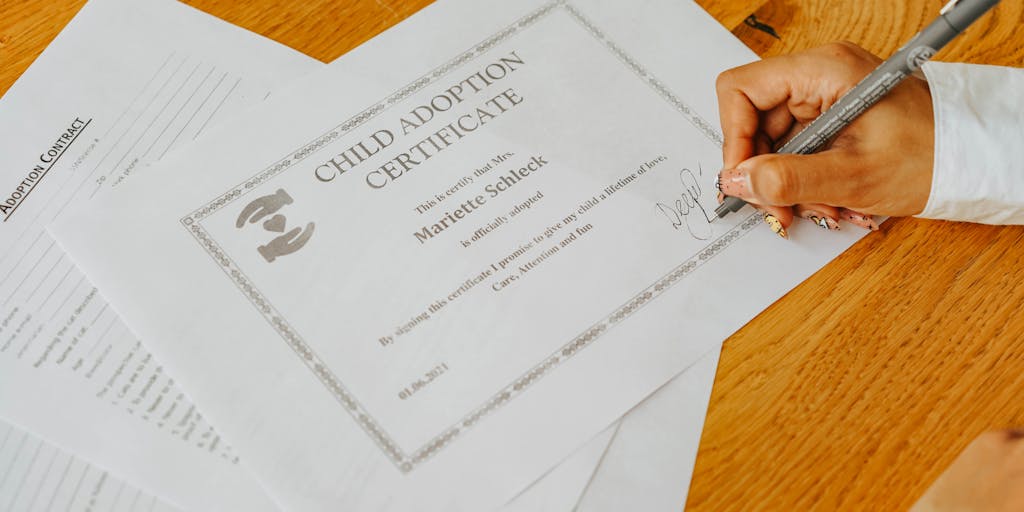When navigating the complexities of child support, many parents wonder how a parent’s disability status might affect their obligations. If you’re in a situation where the father of your child is receiving disability benefits, you might be asking, “Can I still get child support?” The answer is nuanced, and understanding the intersection of disability benefits and child support is crucial for ensuring your child’s needs are met.
Understanding Social Security Disability and Child Support

To grasp how child support works when a parent is on disability, we first need to understand what Social Security Disability Insurance (SSDI) is. SSDI is a federal program that provides financial assistance to individuals who are unable to work due to a disability. This assistance can be a lifeline for many families, but it also raises questions about financial responsibilities, particularly regarding child support.
Child support is designed to ensure that a child’s basic needs are met, including food, shelter, and education. When a parent is on disability, their income may be significantly lower than it would be if they were working. This can lead to concerns about how much child support they can realistically pay. However, it’s important to note that disability benefits can still be considered income for child support calculations.
In many cases, courts will look at the total income of the parent receiving disability benefits, including any SSDI payments, when determining child support obligations. This means that even if the father is on disability, he may still be required to contribute financially to his child’s upbringing. For more detailed insights, you can check out this resource on understanding social security disability and child support.
Understanding Social Security Disability
Social Security Disability benefits are not just a safety net; they are a critical source of income for many families. If the father of your child is receiving SSDI, it’s essential to understand how these benefits work. SSDI is based on the work history of the individual, meaning that the amount received can vary significantly from person to person. This variability can impact child support calculations.
For instance, if the father’s SSDI payments are substantial, they may still be able to meet their child support obligations. Conversely, if the payments are minimal, it might be necessary to revisit the child support agreement. Courts often allow for modifications to child support orders if there is a significant change in circumstances, such as a parent becoming disabled. You can learn more about modifying child support due to disability here.
It’s also worth noting that children of parents receiving SSDI may be eligible for their own benefits. This can provide additional financial support, which can be a relief for custodial parents. If you’re curious about how a child can receive both SSDI and child support, this article on child benefits and child support offers valuable insights.
Ultimately, navigating child support when a parent is on disability can be complex, but understanding the available resources and legal frameworks can empower you to advocate for your child’s needs effectively. If you find yourself in this situation, consider consulting with a legal expert who specializes in family law to explore your options and ensure that your child’s best interests are prioritized.
When navigating the complexities of child support, many parents wonder how a parent’s disability status might affect their obligations. If you find yourself in a situation where the father of your child is receiving disability benefits, you may be asking, “Can I still receive child support?” The answer is nuanced and depends on various factors, including the type of disability benefits he receives.
Understanding Child Support

Child support is designed to ensure that a child’s financial needs are met, regardless of the parents’ relationship status. It’s a legal obligation that can be influenced by many factors, including income, employment status, and, importantly, disability benefits. Understanding how these elements interact can help you navigate your rights and responsibilities.
and Child Support
When a parent is on disability, it doesn’t automatically exempt them from paying child support. In fact, courts typically consider the parent’s income from disability benefits when determining the amount of support owed. However, the specifics can vary significantly based on the type of disability benefits received.
Supplemental Security Income (SSI)
Supplemental Security Income (SSI) is a needs-based program designed to provide financial assistance to individuals with disabilities who have limited income and resources. If the father of your child is receiving SSI, it’s important to note that these benefits are generally not subject to garnishment for child support. This means that while he may not be able to contribute financially through traditional means, it does not eliminate his responsibility to support his child.
In many cases, courts may take into account the father’s SSI status when determining child support obligations. For instance, if he has no other income, the court may set a lower support amount or even suspend payments temporarily. This can be a relief for many parents who are concerned about their child’s well-being while also considering the father’s financial limitations.
For more insights on how SSI impacts child support, you can check out this article on child support and SSDI benefits.
Social Security Disability Insurance (SSDI)
On the other hand, Social Security Disability Insurance (SSDI) is a program that provides benefits to individuals who have worked and paid into the Social Security system but are now unable to work due to a disability. Unlike SSI, SSDI benefits can be garnished for child support. This means that if the father is receiving SSDI, a portion of his benefits can be allocated to child support payments.
It’s crucial to understand that the amount garnished will depend on the total benefits he receives and the specific child support order in place. Courts typically follow state guidelines to determine how much can be deducted from SSDI benefits for child support. If you’re unsure about how this works in your state, resources like this article on child support in NYC can provide clarity.
Moreover, if the father’s SSDI benefits are his only source of income, the court may consider this when setting the child support amount, potentially leading to a lower obligation. This is a critical aspect to consider, as it balances the needs of the child with the financial realities of the parent.
In conclusion, while a father’s disability status can complicate child support arrangements, it does not eliminate the obligation to provide for a child. Whether through SSI or SSDI, understanding the nuances of these benefits can empower you to advocate for your child’s needs effectively. If you have further questions or need personalized advice, consider reaching out to a family law attorney who can guide you through the specifics of your situation.
State Law
When it comes to child support, understanding the nuances of state law is crucial. Each state has its own regulations regarding child support, especially when the non-custodial parent is receiving disability benefits. You might wonder, “How does this affect my child’s financial support?” The answer often lies in the specific laws of your state. For instance, some states allow child support obligations to be adjusted based on the income received from disability benefits, while others may not. It’s essential to consult with a family law attorney in your state to get tailored advice that considers your unique situation.
Can a Child Receive Social Security Disability and Child Support?

This is a common question among custodial parents, especially when the non-custodial parent is on disability. The good news is that yes, a child can receive both Social Security Disability Insurance (SSDI) or Supplemental Security Income (SSI) and child support. However, the interplay between these two forms of financial support can be complex. For example, if the father is receiving SSDI, the child may be eligible for benefits based on that income. This can sometimes affect the amount of child support that is owed, as the court may consider the SSDI benefits when determining the total support obligation.
It’s important to note that while receiving SSDI or SSI can provide additional financial support for your child, it doesn’t eliminate the father’s obligation to pay child support. In fact, the court may still require him to contribute financially, depending on the circumstances. If you’re curious about how this works in practice, you might find insights from others in similar situations on platforms like Reddit.
What is SSDI or SSI?
Understanding the difference between SSDI and SSI is key to navigating child support issues. SSDI, or Social Security Disability Insurance, is a program that provides benefits to individuals who have worked and paid Social Security taxes but are now unable to work due to a disability. On the other hand, SSI, or Supplemental Security Income, is a needs-based program that assists individuals with limited income and resources, regardless of their work history.
For children, these benefits can be a lifeline. If a parent is receiving SSDI, their child may qualify for dependent benefits, which can provide additional financial support. This is particularly relevant when considering child support obligations. For more detailed information on how these benefits interact with child support, you can check out resources like Divorce Attorney in Long Island.
In conclusion, while navigating child support when a parent is on disability can be challenging, understanding your rights and the available resources can empower you to make informed decisions. If you have further questions, consider reaching out to a legal expert or exploring community forums for shared experiences and advice.
When navigating the complexities of child support, many parents wonder how a non-custodial parent’s disability status might affect their obligations. If you find yourself in this situation, you’re not alone. Understanding the nuances of child support in the context of disability can help you make informed decisions for your child’s well-being.
How are child support payments impacted?

Child support payments are typically calculated based on the non-custodial parent’s income. When that parent is on disability, the situation can become a bit more complicated. Disability benefits, such as Social Security Disability Insurance (SSDI) or Supplemental Security Income (SSI), can affect the amount of child support you might receive.
For instance, if the father is receiving SSDI, this income is considered when determining child support obligations. However, the amount he pays may be adjusted based on his reduced income compared to a regular job. This means that while he is still responsible for child support, the payments may be lower than they would be if he were fully employed.
On the other hand, if the father is receiving SSI, it’s important to note that SSI benefits are generally not counted as income for child support calculations. This can lead to a situation where the father may not have a legal obligation to pay child support, or the amount may be significantly reduced. If you’re curious about how this might apply to your situation, you can explore more on Quora.
What if a parent receives SSDI or SSI?
When a parent receives SSDI, they may still be required to pay child support, but the amount can be influenced by their monthly benefit. Courts typically look at the total income, including SSDI, to determine a fair child support amount. It’s essential to communicate with your attorney or a family law expert to understand how these benefits will be factored into your specific case.
In contrast, if the father is on SSI, the rules change. Since SSI is designed to provide for basic needs, it is often not considered income for child support purposes. This can lead to a situation where the father may not be required to pay child support at all. However, this doesn’t mean that the custodial parent is left without options. You might still be able to seek support through other means, such as state assistance programs.
It’s also worth noting that if the father’s disability is permanent, it may be beneficial to seek a modification of the existing child support order to reflect his current financial situation. This can help ensure that the support obligations are fair and manageable.
What are derivative benefits?
Derivative benefits are a crucial aspect to consider when discussing child support and disability. These benefits are additional payments that a child may receive based on a parent’s disability benefits. For example, if the father is receiving SSDI, his children may be eligible for derivative benefits, which can provide additional financial support.
These benefits can be significant, as they are often calculated based on the parent’s earnings record and can provide a substantial amount of support for the child. It’s important to understand that these benefits do not replace child support but can supplement it, helping to cover expenses like education, healthcare, and daily living costs.
If you’re navigating this landscape, it’s wise to consult with a legal expert who can help you understand how derivative benefits might apply to your situation. You can find more information on this topic at BALS.
In conclusion, while a father’s disability can complicate child support arrangements, it doesn’t eliminate the possibility of receiving support. By understanding how disability benefits impact child support obligations and exploring options like derivative benefits, you can better advocate for your child’s needs. Remember, every situation is unique, so seeking personalized legal advice is always a good step forward.
When navigating the complexities of child support, many parents wonder how a non-custodial parent’s disability status affects their obligations. If the father is receiving disability benefits, you might be asking yourself, “Can I still get child support?” Let’s explore this topic together, breaking down the nuances of child support and disability benefits.
Paying Child Support From Social Security Disability (SSDI or SSI)
Understanding how child support interacts with Social Security Disability Insurance (SSDI) and Supplemental Security Income (SSI) is crucial. SSDI is designed for individuals who have worked and paid into the Social Security system, while SSI is a needs-based program for those with limited income and resources.
Both types of benefits can be considered income for child support purposes, but the rules differ. For instance, SSDI benefits can be garnished for child support payments, while SSI benefits typically cannot be. This distinction is important because it directly impacts the amount of support you may receive.
In many cases, if the father is on SSDI, the court can order a portion of those benefits to be allocated for child support. This means that even if he is unable to work due to his disability, he still has a financial obligation to support his child. If you’re curious about how this process works, you might find it helpful to read more about child support and disability.
Learn which disability benefits are considered income and when they can be garnished for child support arrears.
It’s essential to know which benefits are considered income when calculating child support. SSDI benefits are generally treated as income, meaning they can be garnished to fulfill child support obligations. On the other hand, SSI benefits are not considered income for child support calculations, which can leave some parents feeling frustrated.
For example, if the father is receiving SSDI and has fallen behind on child support payments, the court can issue a garnishment order to deduct a portion of his benefits directly. This ensures that the child receives the financial support they need, even if the father is unable to work. However, if he is only receiving SSI, the situation becomes more complicated, as those funds are protected from garnishment.
Can Child Support Be Taken From Disability?
The short answer is yes, but it depends on the type of disability benefits the father is receiving. If he is on SSDI, child support can indeed be taken from his benefits. This is a critical point for custodial parents who rely on these payments to support their children.
However, if the father is receiving SSI, the rules change. Since SSI is intended to provide for basic needs, it is generally exempt from garnishment for child support. This can lead to challenging situations where a custodial parent may not receive the support they need, despite the father’s disability status.
It’s also worth noting that if the father is unable to pay child support due to his disability, he may have options to modify the support order. Courts often consider changes in income and ability to pay when reviewing child support agreements. If you’re facing this situation, it might be beneficial to consult with a legal expert who can guide you through the process.
In conclusion, while disability benefits can complicate child support arrangements, understanding the specifics can empower you to advocate for your child’s needs. Whether the father is on SSDI or SSI, knowing your rights and options is essential in ensuring that your child receives the support they deserve.
When navigating the complexities of child support, many parents wonder how a non-custodial parent’s disability status might affect their obligations. If you find yourself in this situation, you’re not alone. Understanding the nuances of child support in relation to disability benefits can help you make informed decisions for your child’s well-being.
Understanding Disability Benefits
Before diving into child support specifics, it’s essential to grasp the types of disability benefits available. The two primary programs are Social Security Disability Insurance (SSDI) and Supplemental Security Income (SSI). Each has different implications for child support obligations.
SSDI and Child Support
SSDI is a program designed for individuals who have worked and paid into Social Security but can no longer work due to a disability. If the father of your child is receiving SSDI, this income can indeed be considered when calculating child support. The amount he receives may influence the support he is required to pay.
For instance, if the father’s SSDI benefits are substantial, it may lead to a higher child support obligation. Courts typically look at the total income, including SSDI, when determining the appropriate amount. It’s important to note that SSDI benefits are not exempt from child support calculations, which means they can be garnished to fulfill support obligations.
SSI and Child Support
On the other hand, Supplemental Security Income (SSI) is designed for individuals with limited income and resources, regardless of their work history. If the father is receiving SSI, the situation becomes a bit more complex. Generally, SSI benefits are not considered income for child support calculations. This means that if he is solely reliant on SSI, he may not have a legal obligation to pay child support, or the amount may be significantly reduced.
However, it’s crucial to understand that courts can still order support based on the father’s potential earning capacity or other income sources, even if he is receiving SSI. This is where the nuances of each case come into play, and having legal guidance can be invaluable.
Social Security Disability and Child Support Arrears
What happens if the father has fallen behind on child support payments while on disability? This is a common concern. If he is on SSDI and has accrued child support arrears, the state can take action to collect these debts. This might include garnishing his SSDI benefits to ensure that the child support payments are made.
In contrast, if he is on SSI and has arrears, the situation is more complicated. Since SSI is a needs-based program, the court may be limited in its ability to enforce child support payments. However, it’s still possible for the court to review the case and determine if there are other means to collect support, such as looking into any additional income or assets he may have.
Ultimately, understanding your rights and the father’s obligations is crucial. If you’re facing challenges with child support and disability, consider seeking legal advice to navigate the complexities of your specific situation. You deserve clarity and support as you work to ensure your child’s needs are met.
Can Child Support Be Taken From Disability In NYC?
When navigating the complexities of child support, especially in cases where the non-custodial parent is on disability, many parents wonder about their rights and options. In New York City, the law provides specific guidelines regarding child support payments, even when the paying parent is receiving Social Security Disability Insurance (SSDI) or Supplemental Security Income (SSI). Understanding these nuances can help you make informed decisions about your family’s financial future.
In NYC, child support can indeed be taken from a parent’s disability benefits. However, the amount that can be deducted is subject to certain limitations and calculations. The court typically considers the non-custodial parent’s income, including any disability benefits, when determining the appropriate child support amount. This means that if the father is receiving disability benefits, those funds can be factored into the child support equation.
It’s essential to note that while SSDI benefits can be garnished for child support, SSI benefits are generally exempt from such deductions. This distinction is crucial for parents to understand, as it can significantly impact the financial support available for their children.
Getting Social Security Dependents Benefits in Lieu of Child Support
Have you ever wondered if your child can receive benefits directly from Social Security based on a parent’s disability? If the father is on SSDI, your child may be eligible for Social Security Dependents Benefits. This can serve as a vital source of financial support, especially if traditional child support payments are insufficient or inconsistent.
To qualify for these benefits, the child must meet specific criteria, including age and dependency status. Typically, children can receive benefits until they turn 18, or up to 19 if they are still in high school. This can provide a safety net for families relying on disability income, ensuring that children have access to necessary resources.
Applying for these benefits can be a straightforward process, but it often requires documentation proving the father’s disability and the child’s dependency. If you find yourself in this situation, it may be beneficial to consult with a legal expert who can guide you through the application process and help you understand your rights.
How SSDI and SSI Affect Child Support
Understanding the differences between SSDI and SSI is crucial when discussing child support. SSDI is based on the work history of the disabled parent, while SSI is a needs-based program for individuals with limited income and resources. This distinction can significantly affect how child support is calculated and enforced.
For instance, if the father is receiving SSDI, the court may consider this income when determining child support obligations. However, if he is on SSI, the situation becomes more complicated. Since SSI benefits are typically not subject to garnishment for child support, this could limit the amount of financial support available to the custodial parent.
It’s also important to recognize that the courts aim to ensure that children receive adequate support, regardless of the parent’s financial situation. Therefore, if a parent is unable to pay the full amount of child support due to their disability, the court may adjust the support order accordingly. This flexibility is designed to balance the needs of the child with the realities of the parent’s financial capabilities.
When navigating the complexities of child support, many parents wonder how a parent’s disability status might affect their obligations. If you’re in a situation where the father of your child is receiving disability benefits, you might be asking yourself: can you still receive child support? The answer is nuanced and depends on various factors, including the type of disability benefits he receives and the specific circumstances of your case.
Understanding Disability Benefits In New York City
In New York City, understanding the different types of disability benefits is crucial for determining child support obligations. The two primary forms of disability benefits are Social Security Disability Insurance (SSDI) and Supplemental Security Income (SSI). Each has its own rules and implications for child support.
Social Security Disability Insurance (SSDI)
SSDI is a federal program that provides benefits to individuals who have worked and paid Social Security taxes but are now unable to work due to a disability. If the father of your child is receiving SSDI, it’s important to know that these benefits can be considered when calculating child support. The amount he receives may influence how much he is required to pay in child support.
For instance, if the father’s SSDI benefits are substantial, the court may determine that he has the financial capacity to contribute to child support. However, if his SSDI payments are limited, the court may adjust the support amount accordingly. It’s also worth noting that children of SSDI recipients may be eligible for benefits themselves, which can further complicate the financial landscape.
Supplemental Security Income (SSI)
On the other hand, Supplemental Security Income (SSI) is designed for individuals with limited income and resources, regardless of their work history. If the father is receiving SSI, this can significantly impact child support calculations. Since SSI is intended to provide basic financial support for those in need, courts often view it as a minimal income source.
In many cases, if the father is solely reliant on SSI, the court may determine that he cannot afford to pay child support. This doesn’t mean that child support is off the table entirely; rather, it may be set at a lower amount or even suspended until his financial situation improves. It’s essential to communicate openly with legal counsel to understand how these benefits will affect your specific situation.
Ultimately, the interplay between disability benefits and child support can be complex. If you find yourself in this situation, consider consulting with a family law attorney who can provide tailored advice based on your circumstances. They can help you navigate the legal system and ensure that your child’s needs are met, regardless of the father’s disability status.
When navigating the complexities of child support, many parents wonder how a father’s disability status might affect their obligations. If you find yourself in this situation, you’re not alone. Understanding the nuances of child support in relation to disability benefits can be crucial for ensuring your child’s needs are met. Let’s explore how different types of disability benefits can influence child support arrangements.
Child Support from SSDI Benefits
Social Security Disability Insurance (SSDI) is a federal program that provides financial assistance to individuals who are unable to work due to a disability. If the father of your child is receiving SSDI benefits, it’s important to know that these benefits can indeed be considered when calculating child support. In many cases, the court will look at the SSDI income as part of the father’s overall financial picture.
For instance, if the father’s SSDI benefits are his primary source of income, the court may set child support payments based on that amount. However, it’s essential to understand that SSDI benefits are typically lower than regular income, which might lead to a lower child support obligation. This can be a concern for custodial parents who rely on these payments to support their children.
Moreover, if the father has dependents, such as children from other relationships, this can also affect the amount of child support he is required to pay. Courts often take into account the total number of dependents when determining support obligations, which can lead to a reduction in the amount allocated for your child.
Veterans Disability Benefits
Veterans who are disabled due to service-related injuries may receive benefits through the Department of Veterans Affairs (VA). Similar to SSDI, these benefits can also be factored into child support calculations. However, the process can be a bit more complex. VA benefits are often not considered as income in the same way that SSDI is, which can lead to different outcomes in child support cases.
For example, if a father is receiving a monthly disability payment from the VA, the court may not include this amount in the calculation of his income for child support purposes. This can be a significant factor, especially if the father’s VA benefits are substantial. It’s crucial to consult with a legal expert who understands the intricacies of how these benefits are treated in your state.
Private Disability Insurance
Another avenue to consider is private disability insurance. If the father has a private policy that provides income replacement due to his disability, this income can also be included in child support calculations. The key here is that private disability benefits are often treated similarly to regular income, which means they can increase the amount of child support owed.
For instance, if the father is receiving a monthly payment from a private insurer, this amount will likely be considered when determining his ability to pay child support. This can be beneficial for custodial parents, as it may lead to a higher support payment that better meets the needs of the child.
In conclusion, whether you can receive child support from a father who is on disability depends on various factors, including the type of disability benefits he receives. Understanding how SSDI, VA benefits, and private insurance play into child support calculations can empower you to advocate for your child’s needs effectively. If you’re facing this situation, consider reaching out to a legal professional who can provide guidance tailored to your circumstances.
When navigating the complexities of child support, many parents wonder how a father’s disability status might affect their obligations. If you’re in this situation, you might be asking yourself: Can I still receive child support if the father is on disability? The answer is nuanced and depends on various factors, including the type of disability benefits he receives and the specific circumstances of your case. Let’s explore this topic in detail.
Dependent Benefits and Child Support
One of the first things to consider is whether the father’s disability benefits include any dependent benefits. For instance, if he receives Social Security Disability Insurance (SSDI), his children may be eligible for dependent benefits, which can provide additional financial support. These benefits are designed to assist families when a primary earner is unable to work due to a disability.
In many cases, these dependent benefits can be counted as income when calculating child support obligations. This means that if the father is receiving SSDI, the amount he receives for his children could potentially influence the child support amount he is required to pay. It’s essential to communicate with your local child support agency to understand how these benefits are factored into your specific situation.
Child Support from SSI Benefits
Supplemental Security Income (SSI) is another type of disability benefit that often raises questions regarding child support. Unlike SSDI, SSI is need-based and is intended to provide financial assistance to individuals with limited income and resources. If the father is receiving SSI, it’s important to note that this benefit is typically lower than SSDI and may not be sufficient to cover child support obligations.
In many jurisdictions, courts may consider the father’s SSI benefits when determining child support, but they may also take into account his overall financial situation. If the father’s income is significantly low due to SSI, the court might adjust the child support amount accordingly. This is where having a clear understanding of your rights and the father’s financial capabilities becomes crucial. You might want to consult with a family law attorney to explore your options and ensure that your child’s needs are met.
Veterans Disability Benefits and Child Support
For fathers receiving veterans disability benefits, the situation can be a bit different. These benefits are often structured to provide support for veterans who have been injured or disabled during their service. Depending on the amount and type of benefits received, they can significantly impact child support calculations.
Veterans disability benefits are generally considered income, which means they can be included when determining child support obligations. However, the specifics can vary based on state laws and the individual circumstances of the case. For example, if the father’s benefits are substantial, he may be required to pay a higher amount in child support. Conversely, if the benefits are modest, the court may adjust the support amount to reflect his financial reality.
It’s also worth noting that some states have specific guidelines regarding how veterans benefits are treated in child support cases. Therefore, it’s advisable to seek legal guidance to navigate these complexities effectively.
In conclusion, while a father’s disability status can complicate child support matters, it does not eliminate the possibility of receiving support. Understanding the nuances of different types of benefits and how they interact with child support laws is essential. If you find yourself in this situation, consider reaching out to a family law professional who can provide tailored advice and support.
When navigating the complexities of child support, many parents wonder how a parent’s disability status might affect their obligations. If you’re in a situation where the father of your child is receiving disability benefits, you might be asking yourself: can you still receive child support? The answer is nuanced and depends on various factors, including the type of disability benefits and the specific circumstances surrounding your case.
Private Disability Insurance and Child Support
Private disability insurance can play a significant role in determining child support obligations. If the father has a private disability policy, the benefits he receives may be considered income for child support calculations. This means that even if he is unable to work due to a disability, he may still have a financial obligation to support his child based on the income from his insurance policy.
For instance, if the father is receiving a monthly benefit from a private insurance plan, this amount can be factored into the child support calculations. Courts typically look at the total income of both parents when determining support amounts, and private disability benefits are no exception. It’s essential to gather documentation of these benefits to present a clear picture of the father’s financial situation.
Modifications To Child Support Orders For Disabled Parents In NYC
In New York City, if a parent becomes disabled after a child support order has been established, they may seek a modification of that order. This is particularly relevant if the disability significantly impacts their ability to earn income. However, the process for modifying child support can be complex and requires a clear demonstration of the change in circumstances.
Grounds for Modification in NYC
There are several grounds on which a parent can request a modification of child support in NYC:
- Change in Income: If the disabled parent’s income has decreased due to their condition, they can request a modification based on this change.
- Change in Needs: If the needs of the child have changed, such as increased medical expenses or educational costs, this can also be a valid reason for modification.
- Change in Custody Arrangements: If custody arrangements have changed, this may impact the child support obligations.
It’s important to note that simply being on disability does not automatically reduce child support obligations. The court will consider the overall financial situation, including any income from disability benefits, and the needs of the child. If you find yourself in this situation, consulting with a family law attorney can provide clarity and guidance tailored to your specific circumstances.
When navigating the complexities of child support, many parents wonder how a paying parent’s disability status affects their obligations. If you’re in this situation, you might be asking yourself: Can I still receive child support if the father is on disability? The answer is nuanced and depends on various factors, including the nature of the disability, the existing child support agreement, and the laws in your state.
Enforcing Child Support When The Paying Parent Is Disabled
Understanding how to enforce child support when the paying parent is disabled can feel overwhelming. It’s essential to recognize that a disability does not automatically exempt a parent from their financial responsibilities. In many cases, courts will still expect the non-custodial parent to contribute to their child’s upbringing, albeit potentially at a reduced rate.
For instance, if the father is receiving Social Security Disability Insurance (SSDI), this income can be considered when calculating child support. Courts often take into account the parent’s ability to pay, which may lead to adjustments in the support amount. However, it’s crucial to document any changes in income or ability to work, as this information can significantly impact the support order.
Moreover, if the father’s disability affects his ability to pay the previously agreed amount, you may need to file for a modification of the child support order. This process can vary by state, so consulting with a legal expert can provide clarity on your specific situation.
Filing for Modification
Filing for a modification of child support is a necessary step if the paying parent’s financial situation changes significantly due to their disability. You might wonder, how do I go about this? The first step is to gather all relevant documentation, including proof of the father’s disability and any changes in income. This could include pay stubs, Social Security statements, or medical records.
Once you have your documentation, you can file a motion with the court to request a modification. It’s important to clearly outline how the father’s disability has impacted his ability to pay child support. The court will review the evidence and determine whether a modification is warranted. Keep in mind that the process can take time, so patience is key.
Temporary Modifications
In some cases, you may find that a temporary modification is necessary. This could be due to a short-term disability or a situation where the father is unable to work for a limited period. Temporary modifications can provide immediate relief and ensure that the child’s needs are still met during this challenging time.
To pursue a temporary modification, you would follow a similar process as with a permanent modification. However, you would need to emphasize the temporary nature of the change in circumstances. Courts often understand that life can be unpredictable, and they may be more flexible in granting temporary adjustments to support payments.
It’s also worth noting that if the father’s situation improves, he can petition the court to reinstate the original support amount. This flexibility can help both parents manage their responsibilities while ensuring the child’s needs are prioritized.
In conclusion, while a father’s disability can complicate child support arrangements, it does not eliminate the obligation to provide financial support. By understanding your rights and the processes involved, you can navigate this challenging situation more effectively. If you’re looking for more insights on related topics, consider checking out our articles on Best Instagram Advertising Agencies or Best Digital Marketing Podcasts for additional resources that may help you in your journey.
When navigating the complexities of child support, many parents wonder about the implications of a non-custodial parent’s financial situation, especially if they are receiving disability benefits. Understanding how child support works in these circumstances can be crucial for ensuring that your child’s needs are met. Let’s explore some key mechanisms that can help you secure child support even if the father is on disability.
Income Execution
One of the most effective ways to ensure child support payments is through income execution. This legal process allows for the automatic deduction of child support payments directly from the non-custodial parent’s income, including disability benefits. You might be asking, “How does this work?” Essentially, once a child support order is established, the court can issue an income execution order that mandates the payment to be taken from the father’s disability check before he even sees the money.
This method not only simplifies the payment process but also reduces the likelihood of missed payments. It’s important to note that the amount deducted will be based on the court’s determination of the support obligation, which considers the father’s income level, including any disability benefits he receives. If you’re unsure about how to initiate this process, consulting with a family law attorney can provide clarity and guidance tailored to your situation.
Property Liens
Another avenue to explore is the use of property liens. If the father owns property, you may be able to place a lien against it to secure the child support owed. This means that if he sells or refinances the property, the lien ensures that the child support payments are prioritized. You might wonder, “What if he doesn’t have any property?” In such cases, this option may not be applicable, but it’s worth considering if he does own real estate.
Placing a lien can serve as a powerful motivator for the non-custodial parent to fulfill their financial obligations. It’s a way of ensuring that the child’s needs are prioritized, even if the father is struggling financially. If you’re considering this option, it’s advisable to work with a legal professional who can help you navigate the specifics of filing a lien and understanding the implications it may have on both parties.
Tax Refund Interception
Have you ever thought about how tax refunds can play a role in child support? Tax refund interception is another tool available to custodial parents. If the father is behind on child support payments, the government can intercept his tax refund to cover the owed amount. This can be particularly beneficial if he is receiving a tax refund due to his disability status, as many individuals on disability may qualify for certain tax credits.
To initiate this process, you typically need to register with your state’s child support enforcement agency. They will handle the necessary paperwork and ensure that any tax refunds are directed toward the child support arrears. This method not only helps in recovering owed support but also reinforces the importance of fulfilling financial responsibilities towards your child.
In conclusion, while navigating child support when the father is on disability can present challenges, there are several mechanisms available to ensure that your child’s needs are met. From income execution to property liens and tax refund interception, understanding these options can empower you to take the necessary steps to secure the support your child deserves. If you have further questions or need assistance, consider reaching out to a family law expert who can provide personalized advice and support.
License Suspensions
When it comes to child support, many people wonder about the implications of a parent being on disability. One significant aspect to consider is the potential for license suspensions. If a non-custodial parent fails to pay child support, states often have the authority to suspend their driver’s license. This can create a challenging situation, especially if the parent relies on their vehicle for transportation to medical appointments or other essential activities.
Imagine a father who is on disability, struggling to make ends meet. If he falls behind on child support payments, the state may take action to suspend his license. This not only affects his ability to work or attend necessary appointments but can also lead to further financial strain. It’s a cycle that can be hard to break. Understanding the laws in your state regarding license suspensions can help you navigate these challenges more effectively.
Moreover, if you find yourself in a situation where the father is on disability and facing license suspension, it’s crucial to communicate openly. Discussing the financial realities and exploring options for temporary adjustments to support payments can be beneficial. After all, the goal is to ensure the well-being of the child while also considering the parent’s circumstances.
Balancing Rights And Responsibilities
Child support is not just a financial obligation; it’s a shared responsibility that reflects the rights of both parents. When one parent is on disability, it can complicate the dynamics of this balance. You might wonder, how do we ensure that the child’s needs are met while also being fair to the parent who may have limited income?
It’s essential to recognize that both parents have rights and responsibilities. The custodial parent has the right to receive support to provide for the child, while the non-custodial parent has the right to be involved in their child’s life, even if they are facing financial difficulties. This is where open communication becomes vital. Discussing the situation can lead to a more amicable arrangement that respects both parties’ needs.
For instance, if the father is on disability and unable to pay the full amount of child support, it may be worth considering a modification of the support order. Courts often allow for adjustments based on changes in income, especially in cases of disability. This way, you can ensure that the child’s needs are met without placing undue burden on the non-custodial parent.
Best Interests of the Child
At the heart of any child support discussion is the principle of the best interests of the child. This guiding principle emphasizes that all decisions made regarding child support should prioritize the child’s well-being. But how do we ensure that this principle is upheld when one parent is on disability?
First, it’s important to assess the child’s needs holistically. This includes not only financial support but also emotional and physical well-being. For example, if the father is on disability and unable to contribute financially, it’s crucial to explore other ways he can be involved in the child’s life. Regular communication, emotional support, and involvement in activities can significantly benefit the child, even if financial contributions are limited.
Additionally, courts typically consider the best interests of the child when determining support amounts. If the father’s disability affects his ability to pay, the court may take this into account and adjust the support order accordingly. This ensures that the child’s needs are still prioritized while also being fair to the parent’s current situation.
Ultimately, navigating child support when one parent is on disability requires a thoughtful approach. By focusing on open communication, understanding rights and responsibilities, and prioritizing the child’s best interests, both parents can work together to create a supportive environment for their child.
Reasonable Accommodations
When discussing child support, especially in cases where the father is on disability, it’s essential to understand the concept of reasonable accommodations. This term refers to adjustments made to ensure that individuals with disabilities can fulfill their obligations without facing undue hardship. For instance, if the father is receiving Social Security Disability Insurance (SSDI), the court may consider his income and expenses when determining child support payments. This means that while he is responsible for supporting his child, the amount may be adjusted based on his financial situation.
It’s important to recognize that the law aims to balance the needs of the child with the realities of the parent’s circumstances. If the father is unable to work due to his disability, the court may take this into account, potentially leading to a lower child support obligation. However, this does not mean that the father is exempt from his responsibilities; rather, it reflects a fair approach to ensuring that both the child’s needs and the father’s limitations are considered.
So, Can Child Support Be Taken From Disability In NYC?
In New York City, the answer is yes—child support can indeed be taken from a father’s disability benefits. The law recognizes that disability payments are a form of income, and thus, they can be subject to child support calculations. However, the amount deducted will depend on various factors, including the father’s total income, the number of children he is supporting, and any other financial obligations he may have.
For example, if a father receives a monthly disability payment, the court will assess his financial situation to determine a fair child support amount. This process often involves reviewing his income statements and any other relevant financial documents. It’s crucial to note that while the father may be on disability, he still has a legal obligation to support his child, and the court will work to ensure that this obligation is met in a way that is reasonable given his circumstances.
How A Lawyer Can Help You Navigate Child Support Obligations
Navigating child support obligations can be complex, especially when disability is involved. This is where a knowledgeable lawyer can be invaluable. They can help you understand your rights and responsibilities, ensuring that you are treated fairly under the law. A lawyer can assist in gathering the necessary documentation, such as proof of disability income, and can advocate on your behalf in court.
Moreover, a lawyer can help you explore options for modifying child support if your circumstances change. For instance, if the father’s disability status changes or if he experiences a significant change in income, a lawyer can guide you through the process of requesting a modification to the child support order. This ensures that the support amount remains fair and reflective of the current situation.
In conclusion, understanding child support in the context of disability is crucial for both parents. Whether you are the custodial parent seeking support or the non-custodial parent navigating your obligations, having legal support can make a significant difference. If you’re interested in learning more about related topics, you might find articles on best YouTube marketing agencies or best Pinterest marketing agencies helpful as they provide insights into managing your financial responsibilities effectively.
FAQs About Child Support And Disability Benefits In NYC
When navigating the complexities of child support, especially in cases where the non-custodial parent is receiving disability benefits, many questions arise. You might wonder, “Can I still receive child support if the father is on disability?” or “How does his disability status affect the amount of support?” These are valid concerns, and understanding the nuances can help you make informed decisions.
In New York City, child support is determined based on the income of the non-custodial parent. If the father is on Social Security Disability Insurance (SSDI), his benefits can be considered as part of his income for child support calculations. However, the amount he receives may not be as high as a regular income, which can lead to lower child support payments. It’s essential to consult with a family law attorney to understand how these factors play into your specific situation.
Additionally, if the father is receiving Supplemental Security Income (SSI), this may not be counted as income for child support purposes. This distinction is crucial, as it can significantly impact the support you receive. If you’re unsure about how to proceed, seeking legal advice can provide clarity and help you advocate for your child’s needs.
Child Support And Social Security Disability For Children
Understanding how child support interacts with Social Security Disability benefits for children can be a bit tricky. If a child is eligible for benefits due to a parent’s disability, this can influence the overall financial support structure. For instance, if the father is receiving SSDI, the child may also qualify for dependent benefits, which can provide additional financial support.
It’s important to note that these benefits do not replace child support but can supplement it. For example, if the father’s disability benefits are limited, the child support payments may still be necessary to cover essential expenses like education and healthcare. This dual support system can help ensure that the child’s needs are met, even when the non-custodial parent is facing financial challenges.
Moreover, if the father’s disability affects his ability to work, it’s crucial to document this situation. Courts often consider the non-custodial parent’s ability to earn income when determining child support obligations. If his disability significantly limits his earning potential, this may lead to a modification of the child support order. Keeping open lines of communication with your attorney can help you navigate these changes effectively.
Child Support and Social Security Disability for Children
When discussing child support and Social Security Disability, it’s essential to recognize the broader implications for the child involved. If a child is receiving Social Security benefits due to a parent’s disability, this can sometimes offset the need for higher child support payments. However, this doesn’t mean that child support is irrelevant; rather, it should be viewed as part of a comprehensive financial strategy for the child’s well-being.
For instance, if the father is unable to contribute significantly due to his disability, the court may adjust the child support order accordingly. This adjustment process can be complex, and it often requires thorough documentation of the father’s financial situation. You might find it helpful to gather all relevant financial records, including any disability benefit statements, to present a clear picture to the court.
Ultimately, the goal is to ensure that the child’s needs are met, regardless of the parent’s financial situation. If you find yourself in this position, consider reaching out to a family law expert who can guide you through the process and help you understand your rights and options. Remember, you’re not alone in this journey, and there are resources available to support you and your child.
I am disabled and get disability benefits. Do I still have to pay child support?
It’s a common concern for many parents: if you’re receiving disability benefits, does that exempt you from your child support obligations? The short answer is no, being on disability does not automatically relieve you of your responsibility to pay child support. Courts typically consider your income, including disability benefits, when determining your ability to pay.
In fact, child support is calculated based on a variety of factors, including your income level, the needs of the child, and the financial situation of the other parent. If your disability benefits are your only source of income, the court may adjust the child support amount accordingly. However, it’s essential to communicate any changes in your financial situation to the court to ensure that your obligations are fair and manageable.
Have you ever thought about how the legal system balances the needs of the child with the realities of a parent’s financial situation? It’s a delicate dance, and understanding your rights and responsibilities can help you navigate it more effectively.
Need information about available Family Law forms and the legal process?
If you’re unsure about the legal forms you need or the process to follow, there are resources available to help you. Many family law courts provide live chat options or online guides that can walk you through the necessary steps. Additionally, consulting with a family law attorney can provide personalized guidance tailored to your situation.
Understanding the legal process can feel overwhelming, but remember, you’re not alone. Many parents have walked this path before you, and there are professionals ready to assist you in ensuring that your child’s needs are met while also considering your circumstances.
Disability and Child Support in Massachusetts
In Massachusetts, the law recognizes that parents on disability may face unique challenges when it comes to fulfilling child support obligations. The state has specific guidelines that take into account the income from disability benefits. If you find yourself in this situation, it’s crucial to understand how these laws apply to you.
For instance, Massachusetts courts will look at your total income, including Social Security Disability Insurance (SSDI) or Supplemental Security Income (SSI), when determining child support. If your disability benefits are significantly lower than your previous income, you may be eligible for a modification of your child support order. This means you can request a review of your payments to ensure they align with your current financial reality.
Have you considered how your situation might change over time? Life can be unpredictable, and it’s important to stay informed about your rights. If your financial situation changes, whether due to an increase or decrease in your disability benefits, you can petition the court for a modification. This proactive approach can help you maintain a fair balance between supporting your child and managing your own financial health.
In summary, while being on disability does not exempt you from child support, it does provide a framework for adjustments based on your financial situation. Staying informed and seeking legal advice can empower you to navigate these challenges effectively.
When navigating the complexities of child support, many parents wonder how a parent’s disability status might affect their obligations. If the father of your child is receiving disability benefits, you may be asking yourself, “Can I still get child support?” The answer is nuanced and depends on several factors, including the type of disability benefits he receives. Let’s explore this topic together.
Types of Disability Benefits
Understanding the different types of disability benefits is crucial in determining how they impact child support obligations. Generally, there are two main types of disability benefits that a father might receive: Social Security Disability Insurance (SSDI) and Supplemental Security Income (SSI). Each has its own implications for child support.
Social Security Disability Insurance (SSDI)
SSDI is a federal program that provides benefits to individuals who have worked and paid Social Security taxes but are now unable to work due to a disability. If the father is receiving SSDI, this income can be considered when calculating child support. Courts typically look at the total income of both parents to determine a fair support amount.
For instance, if the father’s SSDI benefits are substantial, this could lead to a higher child support obligation. However, it’s important to note that SSDI benefits are not exempt from child support calculations. In fact, the court may order a portion of these benefits to be allocated for child support, ensuring that the child’s needs are met.
Supplemental Security Income (SSI)
On the other hand, Supplemental Security Income (SSI) is designed for individuals with limited income and resources, regardless of their work history. SSI benefits are typically lower than SSDI and are intended to provide basic financial support for those in need. When it comes to child support, the situation can be a bit different.
Since SSI is a needs-based program, courts may consider the father’s limited income when determining child support obligations. In some cases, if the father’s income is below a certain threshold, the court may decide that he cannot afford to pay child support. However, this doesn’t mean that child support is automatically waived; it may simply be reduced to a manageable amount.
It’s also worth noting that if the father is receiving SSI, he may be eligible for additional support programs that can help him meet his obligations. For example, some states have programs that assist low-income parents in making child support payments, ensuring that children receive the support they need.
Ultimately, the determination of child support when a father is on disability benefits can be complex. It often requires a careful examination of the specific circumstances, including the type of benefits received and the overall financial situation of both parents. If you’re facing this situation, it may be beneficial to consult with a family law attorney who can provide guidance tailored to your unique circumstances.
How Child Support Is Calculated in Massachusetts
When it comes to child support, understanding how it’s calculated can feel overwhelming, especially if the non-custodial parent is on disability. In Massachusetts, child support is determined using a formula that considers both parents’ incomes, the number of children, and the custody arrangement. But how does this work in practice?
The Massachusetts Child Support Guidelines provide a clear framework. They take into account the gross income of both parents, which includes wages, bonuses, and even certain benefits. If the father is receiving disability benefits, these payments are typically considered income for the purpose of calculating child support. This means that even if he is unable to work due to a disability, he still has a financial obligation to support his child.
For example, if the father receives Social Security Disability Insurance (SSDI), this amount will be factored into the child support calculation. The guidelines also allow for adjustments based on the number of children and the specific needs of each child, which can include medical expenses or educational costs. It’s essential to gather all relevant financial documents to ensure an accurate calculation.
Additionally, Massachusetts courts have the discretion to deviate from the guidelines if they believe it’s in the best interest of the child. This could happen if the father’s disability significantly impacts his ability to contribute financially, or if there are other extenuating circumstances. Understanding these nuances can help you navigate the child support process more effectively.
Other Disability Benefits
In addition to SSDI, there are other disability benefits that may come into play when calculating child support. For instance, Supplemental Security Income (SSI) is another form of assistance that could be relevant. Unlike SSDI, SSI is need-based and is designed to help individuals with limited income and resources. If the father is receiving SSI, this may also be considered when determining his ability to pay child support.
Moreover, if the father has private disability insurance, those benefits could be included in the income calculation as well. It’s important to remember that all sources of income contribute to the overall financial picture. This means that even if the father is on disability, he may still have a responsibility to provide for his child, depending on the total income from all sources.
Understanding these various benefits can help you advocate for a fair child support arrangement. If you’re unsure about how these factors apply to your situation, consulting with a family law attorney can provide clarity and guidance.
Factors That Could Affect Child Support
Child support is not a one-size-fits-all solution; several factors can influence the final amount. Beyond the basic income calculations, the court considers various elements that could affect the support obligation. Have you thought about how these factors might apply to your case?
- Income Changes: If the father’s disability benefits change or if he receives additional income, this could lead to a modification of the child support order.
- Custody Arrangements: The amount of time each parent spends with the child can impact the support calculation. More time with the custodial parent may lead to higher support obligations.
- Additional Expenses: Special needs, medical expenses, or educational costs can also be factored into the support calculation. If the child has specific needs, this may warrant an increase in support.
- Employment Status: If the father is able to return to work or finds alternative employment, this could change his financial situation and affect child support.
It’s crucial to keep these factors in mind as you navigate the child support process. Each situation is unique, and understanding how these elements interact can help you advocate for your child’s best interests. If you have concerns about how these factors might affect your case, seeking legal advice can provide you with the support you need.
Examples of Child Support Scenarios
When it comes to child support, the situation can vary widely based on individual circumstances. You might wonder, “What if the father is on disability? Can I still receive support?” The answer is yes, but the specifics can depend on several factors.
For instance, consider a scenario where the father is receiving Social Security Disability Insurance (SSDI). In this case, the child may be eligible for benefits based on the father’s disability income. This means that not only can you pursue child support, but your child might also receive a monthly benefit directly from the Social Security Administration. This can significantly ease financial burdens.
Another example could involve a father who is on long-term disability through his employer. In this situation, the court may still require him to pay child support based on his income, which could be a percentage of his disability payments. However, if his income is substantially lower than what it was before his disability, the amount of child support may need to be adjusted accordingly.
It’s essential to understand that each case is unique. Factors such as the father’s income, the needs of the child, and the state laws governing child support will all play a role in determining the final outcome. If you’re navigating this complex landscape, it’s crucial to gather as much information as possible.
Modifying and Enforcing Child Support Orders
Once a child support order is established, you might find yourself asking, “What if the father’s financial situation changes?” This is where the ability to modify and enforce child support orders becomes vital. If the father’s disability affects his ability to pay, you can petition the court for a modification of the support amount.
For example, if the father’s disability leads to a significant decrease in income, you can present evidence to the court showing his current financial situation. This might include pay stubs from his disability payments or documentation from the Social Security Administration. The court will then assess whether a modification is warranted based on the new circumstances.
Enforcement is another critical aspect. If the father fails to make payments, you have options. You can seek assistance from your local child support enforcement agency, which can help collect overdue payments. They may employ various methods, such as wage garnishment or intercepting tax refunds, to ensure that support is paid.
Understanding these processes can empower you to advocate for your child’s needs effectively. It’s about ensuring that your child receives the support they deserve, regardless of the father’s financial situation.
Why Legal Guidance Matters?
As you navigate the complexities of child support, you might be wondering, “Do I really need a lawyer?” The answer is a resounding yes. Legal guidance can be invaluable in ensuring that your rights and your child’s needs are protected. A knowledgeable attorney can help you understand the nuances of child support laws in your state, which can vary significantly.
For instance, they can assist you in gathering the necessary documentation to support your case, whether you’re seeking to establish, modify, or enforce a child support order. They can also provide insights into how disability payments are treated under the law, which can be quite complex.
Moreover, having legal representation can help you navigate negotiations with the other parent. It’s not uncommon for emotions to run high in these situations, and having a professional advocate can help keep discussions focused on what’s best for the child. This can lead to more amicable resolutions and less stress for everyone involved.
In summary, while you can pursue child support even if the father is on disability, having legal guidance can make the process smoother and more effective. It’s about ensuring that you and your child have the support you need to thrive.




































